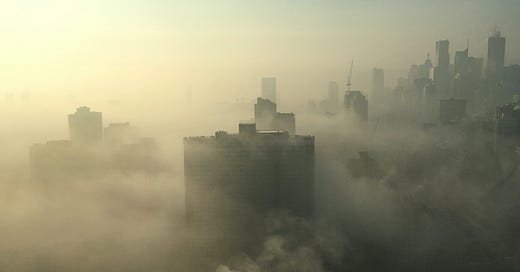Fighting to Breathe: A case study of youth environmental justice activism in Baltimore
ClimateInColour Deep Dives 📝
The unequal proximity of marginalised communities to health hazards, such as sewage works, waste facilities, and mines, is termed environmental racism. Systemic neglect of communities of colour, as well as decades of racist policies around land use, have created these “sacrifice zones”: where one geographic area is overburdened by toxic or polluting industries, sacrificing local residents’ health for the sake of profit.
Today we are going to dive into a case study on how youth organised against environmental racism on the South Baltimore Peninsula, U.S.A. Here, a disproportionate number of residents suffer respiratory disease, far more than the national average: a consequence of the region’s long history of industrial pollution.
Welcome back to the ClimateInColour Deep Dives, bi-weekly in-depth reads covering the intersection of climate justice, climate science and climate technology. In your inbox, every Monday, to start the week right.
Research: Georgie Hurst | Editor: Joycelyn Longdon | Design: Marina Fernández Watanabe
Keep reading with a 7-day free trial
Subscribe to Joycelyn Longdon to keep reading this post and get 7 days of free access to the full post archives.



